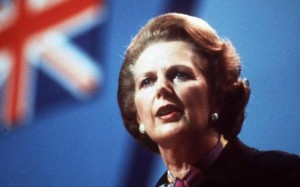
Secondo un rapporto confidenziale, l’opzione estremamente controversa restò una possibilità fino al 1988, ma solo se la situazione sicurezza fosse drammaticamente peggiorata.
Il rapporto fu redatto dopo il commento pubblico rilasciato dall’allora Segretario di Stato per l’Irlanda del Nord, Tom King, secondo cui il ritorno dell’internamento era “sotto esame”.
Privatamente, i diplomatici statunitensi vennero ragguagliati che l’opzione non era stata abortita, sebbene fosse legata ad un grave aumento delle attività terroristiche, con il governo Thatcher preoccupato nel fornire all’IRA una “vittoria propagandistica”.
Lo scenario è dettagliato in un rapporto confidenziale intitolato “Nordirlanda – controllando la violenza”, inviato ai diplomatici di Washington.
Nel documento si illustra come:
- King fu criticato in privato da funzionari del NIO dopo una valutazione ottimistica delle capacità dell’IRA, che avrebbe potuto portare a nuovi attacchi
- Sei anni prima del primo cessate-il-fuoco, il governo britannico e quello americano non vedevano “una soluzione a breve termine” del problema Irlanda del Nord
- L’IRA fu costretta a rinviare gli attacchi pianificati sul suolo inglese dopo l’assassinio dei Gibraltar Three (i Tre di Gibilterra – Mairead Farrell, Daniel McCann e Sean Savage).
L’internamento – ossia trattenere i sospetti di attività terroristiche per un tempo indefinito senza sottoporli a processo – fu una delle politiche più controverse dei Troubles e contribuì ad infiammare le tensioni settarie. Venne introdotto con l’Operazione Demetrius nell’agosto 1971, e non fu abrogato fino a dicembre 1975. Durante quel periodo 1.981 persone furono internate, compreso il presidente dello Sinn Fein Gerry Adams.
La rivelazione che il governo Thatcher stesse ancora considerando tale opzione nel 1988 – dopo il peggior ciclo di violenza dei Troubles – provocherà sorpresa. Alcune delle 104 morti di quell’anno sono state indicate come “legate al conflitto”, ma il prezzo pagato in termini di vite umane fu notevolmente inferiore rispetto ai sanguinosi periodi di inizio Settanta.
Uno degli attacchi peggiori avvenne il 20 agosto, quando 8 soldati furono uccisi e altri 28 rimasero feriti dallo scoppio di una bomba lasciata dall’IRA sul ciglio della strada vicino a Ballygawley, nella Contea di Tyrone.
L’autobus senza insegne stava trasportando 36 membri della Brigata di Fanteria Leggera verso una base militare ad Omagh quando la bomba ,composta da circa 90 chilogrammi di esplosivo, scoppiò.
Nell’immediatezza dell’attacco, King avvertì che il Governo stava valutando se reintrodurre l’internamento. I documenti mostrano che l’opzione veniva valutata ma gli attacchi dell’IRA avrebbero dovuto essere ben più gravi per garantire la mossa.
“Il Governo di Sua Maestà sa che adottare l’internamento sarebbe una vittoria propagandistica e una spinta al reclutamento per l’IRA”, si legge.
Si avverte anche che l’internamento non avrebbe potuto funzionare se non veniva adottato anche nella Repubblica d’Irlanda, cosa che, si legge ancora, “difficilmente potrebbe avvenire”. Il messaggio pubblicato ora su WikiLeaks fu redatto dall’ambasciatore degli Stati Uniti nel Regno Unito, Charles Price.
WikiLeaks: Thatcher considered reintroduction of internment
According to a confidential US terror report, the highly controversial option remained a possibility as late as 1988, but only if the security situation dramatically worsened.
It came in the wake of public comments from then Northern Ireland Secretary Tom King that a return to internment was “under review”.
Privately, US diplomats were briefed that the option had not been ruled out, albeit it was dependent on a serious escalation in terrorist activity with the Thatcher government wary of handing the IRA a “propaganda victory”.
The scenario is detailed in a confidential briefing entitled ‘Northern Ireland — controlling the violence’, which was sent to diplomats in Washington.
The document also noted how:
- Mr King was privately criticised by NIO officials after an overly optimistic assessment of IRA capacity, which may have fuelled more attacks
- Six years before the first ceasefire, the UK and US governments could see “no near-term solution” to the Northern Ireland issue
- The IRA were forced to postpone attacks planned for mainland Britain after the killing of the Gibraltar Three.
Internment — detaining terror suspects indefinitely without trial — was one of the most controversial policies of the Troubles and is widely believed to have inflamed sectarian tensions. It was introduced under Operation Demetrius in August 1971, and was not repealed until December 1975. During that time 1,981 people were interned, including Sinn Fein president Gerry Adams.
The revelation that the Thatcher government was still considering the option as late as 1988 — outside the worst cycle of violence — will cause surprise. Some 104 killings were listed as “conflict related” that year, but the death toll was considerably lower than the bloodiest period of the early 1970s.
One of the worst attacks came on August 20, when eight soldiers were killed and another 28 were injured by an IRA roadside bomb near Ballygawley in Co Tyrone.
The unmarked bus had been transporting 36 members of the Light Infantry Brigade to a military base in Omagh when the 200lb device was detonated.
In the wake of the attack, Mr King warned that the Government was considering reintroducing internment. The briefing paper quotes Government contacts as saying the option was under review, but IRA attacks would have to be more serious to warrant the move.
“HMG (Her Majesty’s Government) knows that adopting internment would be a propaganda victory and a recruitment boon for the IRA,” it states.
It also warned internment was unlikely to work unless adopted simultaneously by the Republic, which it added was “extremely unlikely”. The cable was written by the US ambassador to the UK, Charles Price.